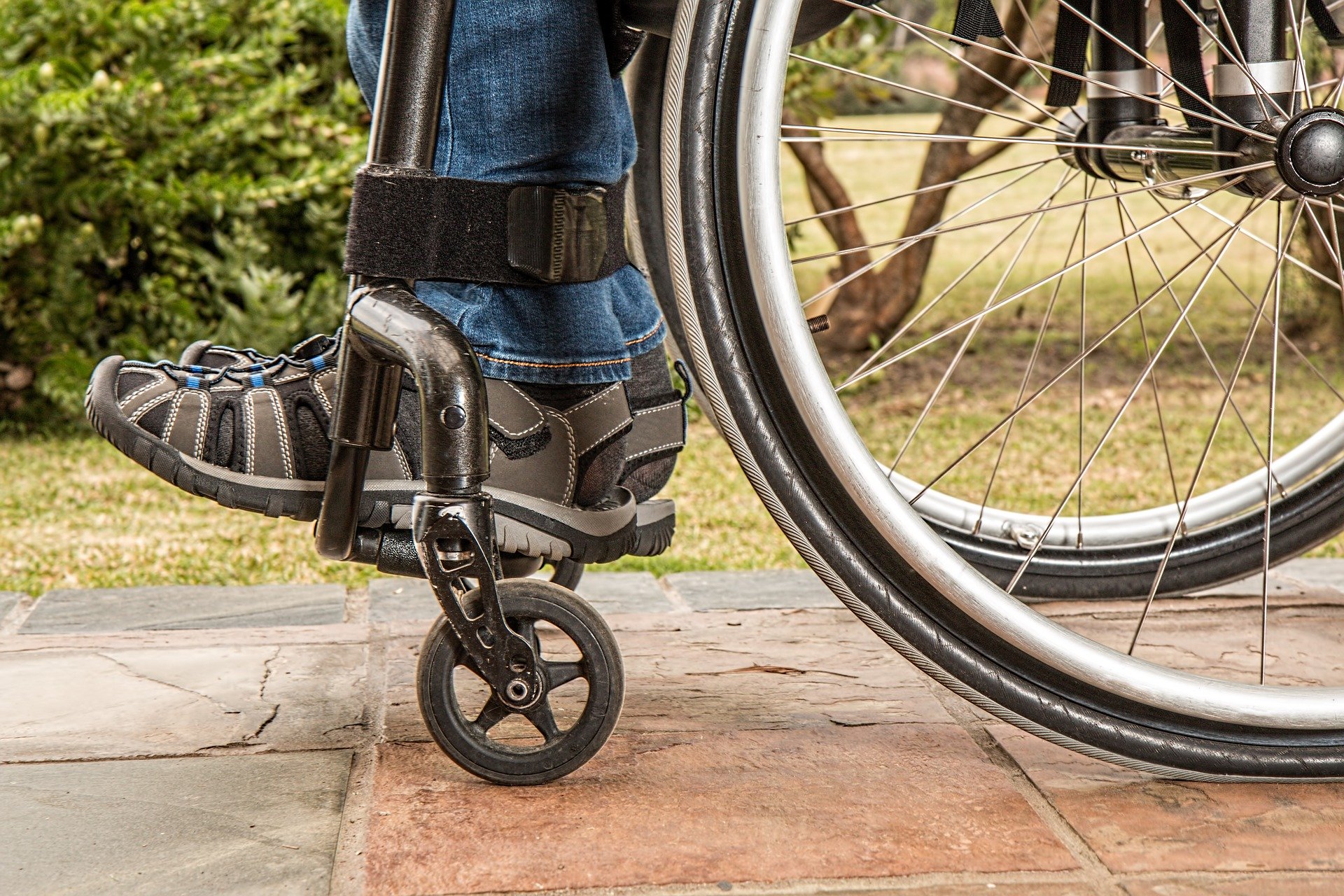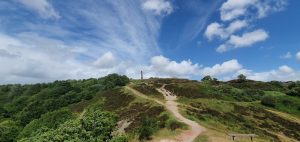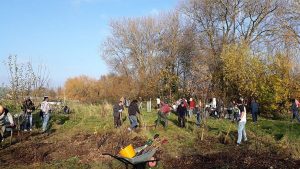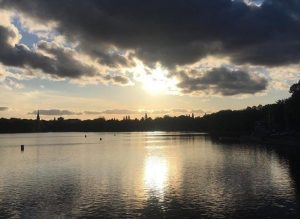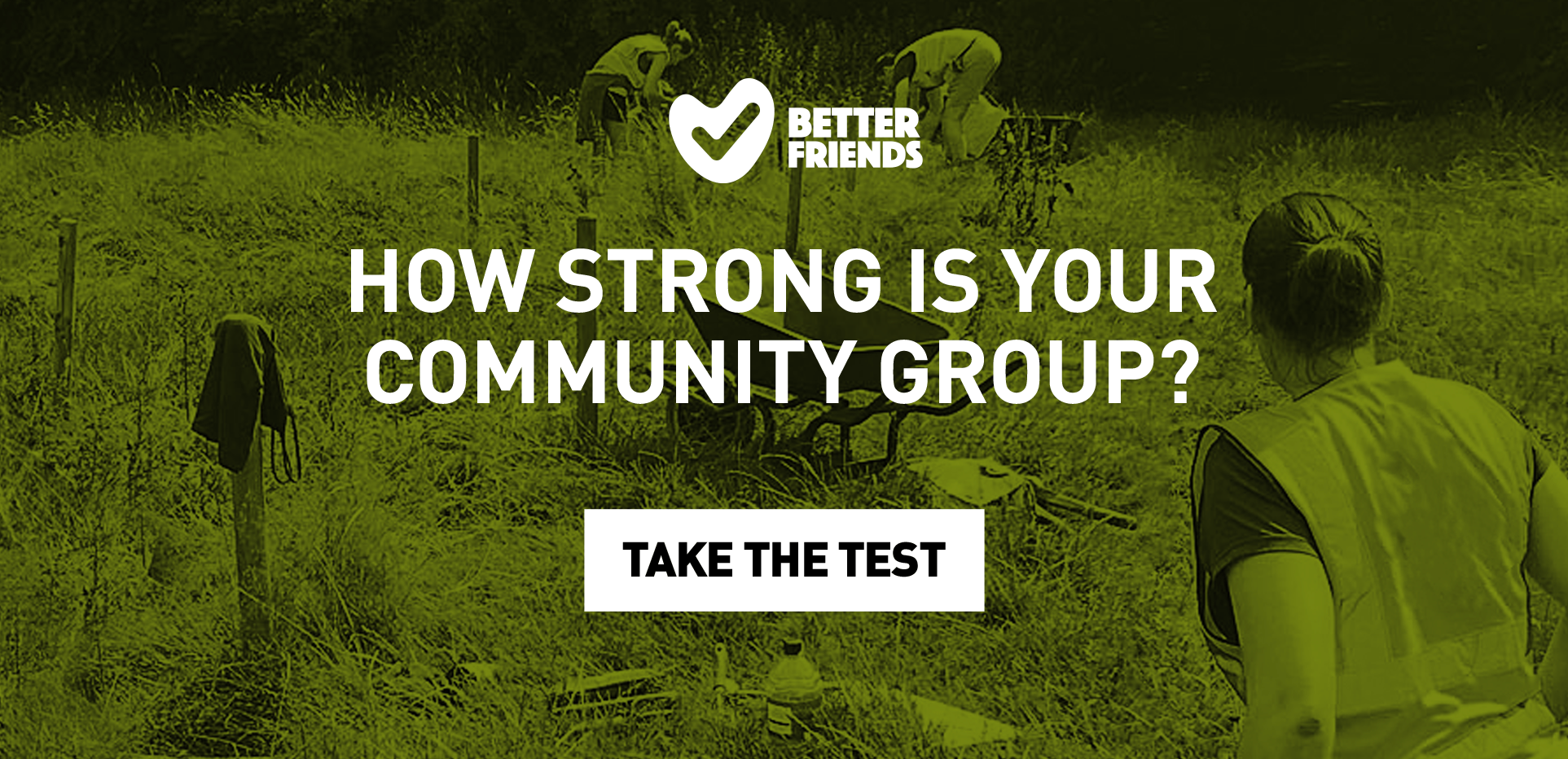Access and accessibility issues should play a part in the development of any park event. This toolkit will focus on access issues with regard to disability, although many of the points raised will also be relevant in regard to broader access issues, such as language and culture.
As for many things to do with event planning, it is relatively straightforward to mitigate against accessibility barriers. This can be done by involving as many people as possible who are interested in your event plans or simply making your event accessible to all on the day. More complicated barriers such as landscaping changes to a site or installing hearing loop systems to a community centre may require more thought.
Feedback from people with disabilities suggests that being involved in volunteering activities offers links into the wider community, develops skills and reinforces their confidence. It also encourages the wider community to recognise the valuable contribution people with disabilities make. It offers community groups access to more active volunteers, ideas and links to wider organisations.
Suggestions made within this toolkit are designed to give hints and tips on how to encourage members of the community with disabilities to get involved in a community group’s event plans as well as assist individuals to attend on event days.
Integrating accessibility into your event plans
Many groups may not recognise accessibility as a key issue, as none of their members experience access problems. However there could be a number of others close by, keen to get involved in the group but not receiving information in a suitable format or at a suitable venue, who are missing out. There are a lot of simple things community groups can build into their usual practice to combat this and access these additional volunteers.
Often community group members with disabilities will have developed strategies for overcoming barriers to their involvement. These could be developed further to benefit potential new members or keep those in the wider community with disabilities informed of the group’s work.
Drawing accessibility issues into an event plan can open opportunities for groups to tap into extra active volunteers, interesting activities and funding.
Legalities to consider
On the whole, the Disability Discrimination Act 2004 (DDA) requires small businesses to make ‘reasonable adjustments’ to the way they provide services to customers, to prevent discrimination against a customer with a disability. Most community groups would not be regarded as businesses, although it would be considered best practice for groups to endeavour to follow some of the DDA recommendations. Most premises used by community groups are owned by the local authority. As landlord they again have a duty to make reasonable adjustments to ensure furniture and fixtures are accessible, such as light switches or door handles, following the DDA guidelines. However, they are not required by the DDA to make physical alterations to the building’s structure.
For more information on the DDA and government recommendations, visit:
www.direct.gov.uk/browse/disabilities
Communications
Much of the event organisation is about communication. Whether it is recruiting volunteers to help organise, keeping people informed of progress or inviting people to come along on the day, communication is paramount.
Here are some examples of good practice, which can help ensure a group’s communications are as accessible as possible:
- Produce written materials, such as minutes and agendas, above a minimum font size of 12. Have larger font sizes available if required.
- Design your website with variable font size options and ensure it is suitable for use with screen technology;
- If you don’t have access to a text-talk telephone, access to a fax machine can be a useful alternative;
- Regularly update your website with group news so individuals accessing information from home can keep up to date. Give plenty of notice for future meeting dates and state access limitations as a matter of course, promoting an inclusive outlook;
- Produce promotional material, such as posters and flyers, using clear language and use simple symbols to illustrate key messages, for people with low level literacy;
- Use large font size on promotional materials and colours which distinguish between foreground and background. This will make writing stand out more clearly.
- Usually community groups are not expected to produce written materials in alternative formats, such as Braille; however, contact the local authority Access Officer for details of how to have these produced if specifically requested by a local resident.
- A local authority may be able to provide contact details of local disability organisations. These could either be included in a group’s regular mail out or used to specifically target organisations for particular projects.
Location
In order to make a community group and the event accessible, choosing a suitable location to hold meetings and host an event are fundamental. Here are some hints and tips on how to help achieve this:
Meeting venue
- Ideally meet in a fully accessible venue or alternate between local venues of which one is accessible. The venue should be well lit, both inside and out, with provision for parking close by;
- Have a loop hearing system installed in the meeting room;
- Ensure the meeting is welcoming to companions of members with a disability;
- Ensure meetings are well managed and someone lip reading is able to sit in an appropriate position.
Event Site
- Your event site may have inaccessible areas. If this is the case, try to overcome these barriers through matting, alternative routes, additional forms of transport or placing clear signs where access is difficult;
- Mark accessible routes on the event map;
- Have at least one disabled toilet on site at the event;
- Set aside disabled parking and a drop off point;
- Provide seating and rest places around the event site;
- Ensure all signage at the event uses large clear lettering;
- Offer assisted attendance at events, through ‘pick up’ by other group members or by community bus transportation.
ACTIVITIES
By ensuring many of the event activities are accessible, a community group can help to make an event more inclusive to the wider community. Here are some ideas of how to go about achieving this:
- Use disability organisations within your community to link up to potential performance or drama groups in your area.
- Check on site facilities, such as ballparks for accessibility. Then investigate local options for disabled sports such as wheelchair basketball groups, hand-bikes or disabled sailing, if you have a sizeable lake. Both disabled and able bodied visitors can be involved in these.
- A range of more passive activities, such as gentle yoga, meditation, chair exercises or tai chi offer stimulation and relaxation.
- Host an activity that particularly focuses on one or more of the five senses: touch, smell, taste, sound or sight.
- Creative arts and craft workshops, enabling people to take part in empowering community arts projects, regardless of their level of disability or disadvantage.
- A film festival, showcasing short, motivating films created by both able and disabled groups within the local community;
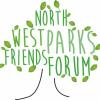
Reproduced with permission of North West Parks Friends Forum

